I don't know anyone who considers that 2020 has been a good year. The phrase I hear repeatedly is, "When this craziness is over." Besides the pandemic, it has been marred by an extended presidential election process that represents the low for that event of my lifetime.
For me, personally, all the of imporant things have been unaffected. I am healthy and secure, with only minor inconveniences in daily life. What I have missed the most has been the extended near-absence of casual social contact, of little unremarkable events that taken together add up to a lot. The other side of this – perhaps! – has been that people seem to make more of such contacts when they do occur.
Well, we'll see. My view is the prevailing one of public health experts, who expect that sometime, perhaps in the second half of the year, vaccinations will be gradually changing the face of life. I am less certain about the economic horizon. Some of the closures and shrinkages that have occurred will not be reversible. As a nation, we have overspent. I wouldn't say that if the money had been broadly distributed. It hasn't been. It's gone mainly to those who don't need it, causing tremendous inflation in asset prices, almost none in the basics of subsistence included in the Consumer Price Index. Almost by definition, that is a bubble.
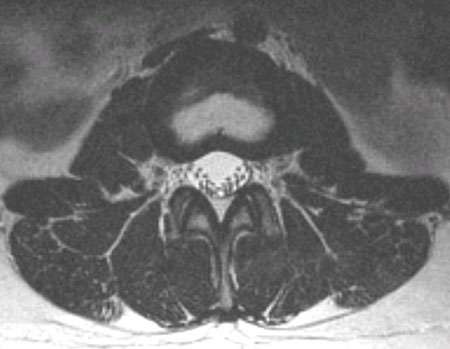
I recently had occasion to have MRIs of my lower spine taken. According to the obstetrician who delivered me, I was born with spina bifida occulta, meaning that as the embryonic neural tube developed, it failed to close itself normally at the posterior of at least one vertebra. A view of the normal spine, from Case University, shows a very symmetric growth with a wishbone-like structure at the bottom center of the image. That is the closed, fully developed spine with the characteristic spinal process (bone) pointed down in the image, to the back of the patient.
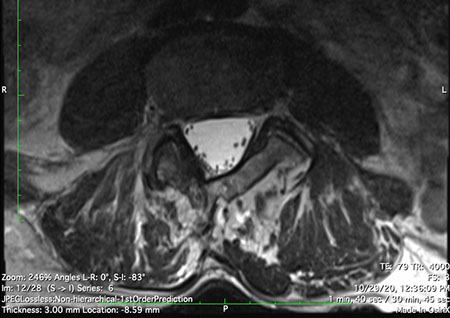
My MRI, at the level of the fourth lumbar vertebra, is notably assymetric. The wishbone-like shape is skewed, and the intended spinous process is rotated a bit from its normal position. If you look carefully, you can see that the sides of the arch are only partially fused. To make a long story short, this distortion has implications for my functional status, but is not spina bifida,
Anyway, I find it fascinating, beyond any immediate practical utility, to be able to see inside my body so clearly. I can also understand the benefit of letting the diagnosis of spina bifida stand for so many decades. If it isn't quite correct, it at least it has a name and is getting close, giving people some idea of what's going on. The reality is far more complex, but beyond putting in words.
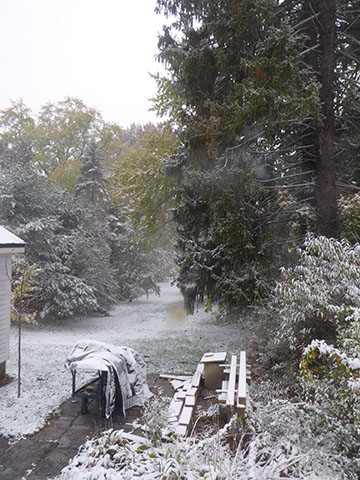
Off-season snows predictably tend to be wet. If the fall is significant, they can be destructive, since the trees have not lost their leaves and end up bearing more weight than they are designed for with the sticky stuff added on.
The snow today wasn't too heavy, so it offered a rather striking picture of fall and winter together. The snow will be gone in a day or two.
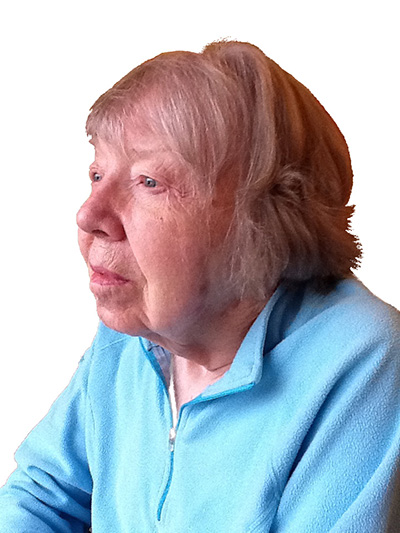
I began web development with creating a site for my mother. Her mind had slipped far beyond the point of being able to communicate with others to a meaningful extent. Still, there were family and friends across the country who were interested in her. A web site seemed to offer a way to provide communicate with them. A second benefit, in my mind, was its bringing dementia out of the closet. Within my family (and many others), the burden of dementia had been much increased by its being considered a shameful illness. Heavens, my mother didn't lose her mind on purpose or out of weakness of character!
In the event, the plan worked out very nicely for my intended purposes. That was six years ago. Now, no one is looking at it, I know from reviewing Google Webmaster. And fairly often, it gets hacked. It is a sorry view of a slice of mankind to look at the spam and those takeovers!
So, I have been thinking more and more about just taking it down. As I review the details, though, I find the blog journal of the last years a very touching and informative story, the kind of thing that I wish I'd had going into that phase of my life. In the end, I decided that I would recreate the site in a new configuration. I will move away from Wordpress, which seems because of its wide use to offer hackers targets that they have developed techniques to enter. I will also cut a lot of material that seems at this point to have been only of transient interest, and broaden a couple of big picture aspects.
The site is up and live, though only in a rudimentary state right now. Stay tuned, and keep your eye out for the blue flower ![]() ! (It's a link.)
! (It's a link.)

I have finished replacing some 200 feet of wood fence on the far right boundary of my land. It isn't 110% clear where that boundary is, because the surveys of my many neighbors are all very local affairs, leaving any number of conflicts within the big picture. I've gone over all of the history and plans that I can find and have identified an approach that I'm comfortable with. To get things resolved beyond a reasonable doubt would, I guess, involve going to the Land Court, with much time and expenditure. I don't want a dispute; I just want to be reasonable about what goes with whom.
Building the fence was fairly straightforward, with only a couple of very difficult post holes. That's better than average, though still not as easy as a section I built on the opposite side in 2014. There was one large tree in the way, which I have felled and mostly cut up.
It was fairly heavy labor, and the weather was steadily hot, with orange heat advisories in the background of the NWS displays. My weight at one point was down to the lowest it's been in decades, reflecting more fluid loss (despite drinking a lot) than solid mass.
Well, it's done, and looks nice. Now, the elements will gradually turn it gray.
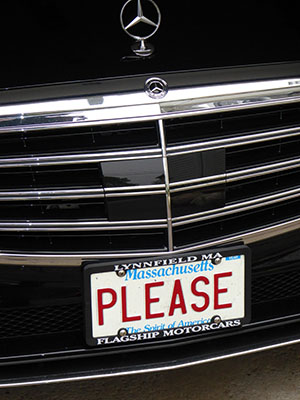
When I bought my last car five years ago, there were wide enthusiasm and optimism for the notion of self-driving cars. I was, and still am, a believer.
At that time, the car had two fundamental skills: it knew it wasn't supposed to get too close to other cars, and it was supposed to stay between the dotted lines – assuming that there were dotted lines. Those two abilities go far, especially on highways but even on most smaller roads. Cars increasingly, though so far not highly reliably, are able to detect pedestrians and threatened objects in their paths. Early during my car's initial days, I was driving in the dark and rain along a narrow rural road at a fair speed, when suddenly the car started beeping at me insistently and displaying a picture of a bicyclist on its screen. Sure enough, there was a cyclist, without lights, close to my path, in highly risky conditions. I would like to think that I would have seen the cyclist in time. Still, the car saw him first and alerted me. Curiously, this action happened even though I had not purchased the night vision option with the vehicle. I guess Daimler figured that certain situations warrant giving out unpurchased services. In any case, this potentially live-saving episode made me a firm believer in the cause of electronic driving assistance.
I had imagined, as did just about everyone else, that automation would move forward in appreciable steps over the next five years. With my latest car, I find that the progress has been minor, and in some ways has even moved back in minor ways.
Now, the automated steering, speed control and GPS are partly interconnected. For instance, the car will slow down if it is going around a curve or approaching a critical corner of the route. It has the ability to read speed limit signs and adapt the car's progress according, with 90-something percent accuracy. That is sometimes helpful, sometimes not. One may override the posted speed limits, but after a while the car will revert to following them. My previous car monitored whether I had my hands on the steering wheel by feeling the pressure of my hands. The current one attempts to do the same thing by keeping track of how long it has been since I steered out of the path it was setting. That leads to many false alarms. If the car is doing its job correctly of staying centered between the painted lines, and I am doing my job correctly at the same task, the two paths will coincide optimally, so those is no call for me to correct its course. This is precisely the situation that usually triggers the alarms, which is just really poor design.
Still, I believe that overall the driving assistance features make the automobile safer, at the expense of a few minor nuisance alerts. On the whole, it also makes things easier by doing much of the routine work.
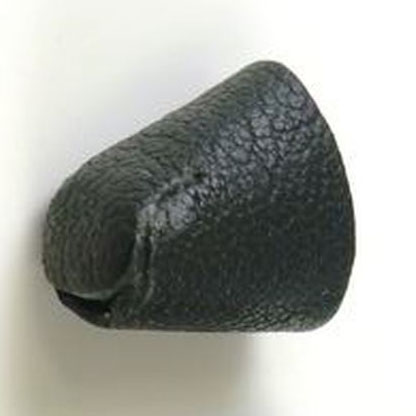
This morning, I found an unexpected gift bag on my front steps. It contained a thimble and a note:
Dear Mr. Nordberg,
I found your website when I was looking for more information on your artwork, and I noticed that you needed a thimble. I spend a lot of time sewing, and I thought you might like this thimble. I find that the leather ones with a metal guard in them are pretty comfortable and can fit various finger sizes. I hope this helps you the next time you need to sew and sandbag or anything else.
July 2020
There was no signature.
That was really rather thoughtful, wasn't it? I haven't sewn anything with the new thimble yet, but it is my size and fits very naturally onto my finger. (And the note even spelled my name correctly, which I hardly take for granted.)
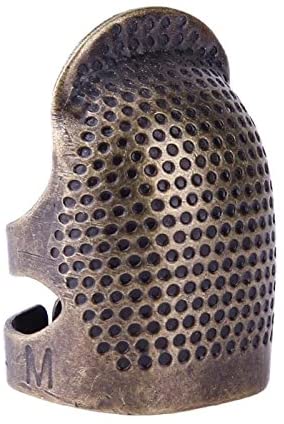
In old wills that I read in my family history research, women sometimes name "my silver thimble" as a bequest to some individual. (Mostly, women couldn't own property at all except by widowhood, but that is a topic for a different day.)
I felt the need for a thimble in the process of sewing sand bags for my stone carving. I've found that old blue jeans are a good material, except that sewing through the doubled-up manufactured seams is not entirely a matter for delicacy of approach.
There are some exquisite thimbles around, old and modern, I know. Most of them are traditionally shaped like a cap. They come in different sizes for different finger sizes. The really nice ones are generally expensive – which they shouldn't have to be in our age of mass production – and are sized for women's smaller fingers, rather than my male large-size hands.
I don't need an heirloom for my purposes, so I settled for about the least expensive item stocked by Amazon. It's one of those one-size-fits-all gizmos that don't fit me, but it's been fine for my purpose of a sandbag or two a year. I perhaps should have looked for a leatherworker's tool.
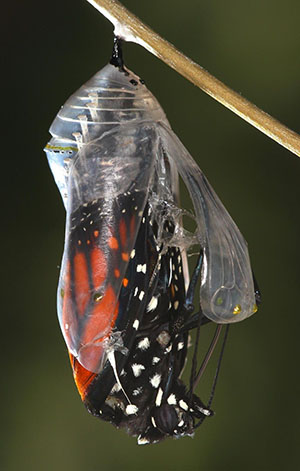
This is the first pandemic of the global age. Since it's the first, the world, ipse facto, has not known how to approach it. It was clear pretty much from the first that the new virus could kill and was highly contagious, often being transmitted even before an infected person experienced symptoms.
We overreacted at first, which is not a bad idea when the threat is extremely serious and we scarcely have a clue about how to defend outselves against it. For instance, the first public health advice stressed hand sanitation, which is a mainstay of bacterial infection control. Masks were discouraged, since they were considered of doubtful efficacy and were in short supply anyway. Now that the tide is subsiding (mostly), behavior is reverting to close to normal – as long as people are wearing face coverings of some sort. That is, after all, a relatively minor inconvenience.
Crises may bring out the good and bad in us. I had hoped that this spell of forced working together might rub off beyond the quarantine. Indeed, I have noticed that people's driving has been noticeably more considerate, perhaps because of increased awareness, perhaps because of reduced stress with reduced traffice. On the other side of things, there are nationwide riots following the death of George Floyd in police hands. I have little doubt that the anxieties and frustrations of the pandemic have contributed to the broad outlet of feelings over that event, the more so because those who were disadvantaged in the first place have been disproportionately affected.
Over a longer term, I see the epidemic driving wedges between us at many levels. Most locally, it is six feet distance between two of us. Globally, is it the breakdown of basic economic supply chains and of fundamental political trust and cooperation. I have seen predictions of the time for resolution running from mid-April – this past Easter – to ten years in the future. I feel, sadly, that the balance is likely to weigh toward the go-it-alone attitude, at a time when globalization and exponential technological growth have made that approach about as viable as deciding to remain a dinosaur.
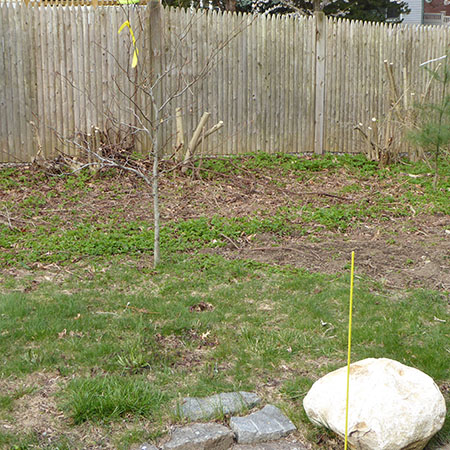
On both sides of my house, when I bought it, there were privet hedges running along the lot lines. This was from ancient times inopportunely on the northeast side, where sunlight comes only fleetingly. The plants struggled for light, growing upward with long woody trunks. There was a strip perhaps five feet wide between the hedge and the house where nothing would grow at all. The neighbor's cats found it a good bathroom, and it smelled strongly of male spray. On the southwest line, the privet did well – until that neighbor decided to put up a six foot fence between the hedge and the sunlight. So, that hedge too, starved for light, grew upward and woody. Because it was topheavy and couldn't grow in the direction of the neighbor's house, it leaned over in my direction. Eventually, it spanned ten feet horizontally, half the width of the lawn area. Other things grew up within it, Norway maples and an aggressive wild grape with inedible fruit less than a quarter inch in diameter. The neighbor was agreeable to my trimming the hedge, as long I did it the way he wanted. I am not sure how I ever went along with such an idea.
Every year, I reclaim an area of my yard from unplanned growth. This year, it was the privet hedge. It took me a few afternoons to cut it down. Now stumps are left. I'm removing these at the rate of one a day, with a slowdown today due to a mildly sprained wrist. The stumps are ornery and tenancious critters, I must say.
I've followed an Arbor Day-like custom of planting trees each spring. After twenty years of that, some of the early ones are good-sized specimens by now. Next to where the hedge is removed, I have a beech and a white pine established. The beech is fairly hardy. The white pine requires careful protection from weevils each spring. I've transplanted an elm that was in a non-viable location in the rear of my yard. I couldn't manage as big a rootball as I would have liked, but I pruned it back significantly after transplanting and have been careful to keep it well-watered. So far, it is looking helpful. We'll see.
The first known death attributed to COVID-19 in my town was of a man who had lived two doors down from me. In the week before, the occupant of the home between us died, without citation of coronavirus, though that could have been present. Both had been in failing health for a number of years and were in nursing homes, so the pair of events does not feel directly threatening to me.
The plight of subacute and long-term care facilities is not an easy one at this time. Even with the best management of infection hazards, the task of caring for people who can't do the most basic things for themselves can't be done at a distance of six feet. In practice, infection control is usally several steps below optimal, in my experience.

Both of my Ph.D. parents suffered from advanced dementia during the last decade of their lives. My father's was called "Parkinsonian," meaning that it was like what people usually called Parkinson's Disease, but without the resting tremors often associated with that disease. The description of "atypical Parkinson's" suggests that the syndrome might be more than one thing. In any event, treatment was oriented toward the physical bradykinetic manifestations, basically relying dogmatically on levadopa. I understood only later that the mood disorder, depression, that my father was experiencing was integrally tied to the dopamine dysfunction of Parkinson's. There was no attempt to address that medically; it was viewed as a separate psychiatric issue. Tunnel vision!
An editorial in the current issue of Neurology represents substantial progress since then:Although long established as a quintessential movement disorder, Parkinson disease (PD) is increasingly recognized as a complex neuropsychiatric condition. In fact, more people with PD (PWP) have at least one neuropsychiatric symptom, such as anxiety, apathy, cognitive impairment, depression, or psychosis, than have rest tremor. Depression alone affects half of all PWP and is one of the most important factors affecting quality of life over the course of the disease. Depression also compounds disability in PWP, leading to more rapid mental and physical decline and greater impairment in activities of daily living, resulting in greater burden on caregivers, health care services, and the economy. Treating depression using an interdisciplinary approach is therefore an essential part of the overall management of PD.
It is curious what people are stocking up on. I can understand that they want hand sanitizer, though from what I can see, soap and water works better against the coronavirus, and the token dabs and three-second rubs of hand sanitizer I observe have little but token and feel-good value.
I read reports of buyouts of toilet paper, which seems very strange to me. Perhaps there's some notion of cleanliness behind it? At the local market, I observed the long chicken displays totally empty. I suppose chicken can be frozen; I sometimes put leftover odd parts in my own freezer. I'd guessed that pizza dough would be enough of a speciality that there wouldn't be a run on it, but that wasn't correct. And I read that people are stocking up on guns and ammunition, which leaves me shaking my head sadly.
I figured early on that if the epidemic is going to run high for at least some months, either the grocery stores are going to remain open, or just about everybody will starve to death. So, I haven't stocked up on food, beyond planning as well as I can to keep the store trips to as few as possible. When other states began closing non-essential businesses, I saw the handwriting on the wall. First thing off, I ordered a couple of books that I won't get to for at least a few weeks, Claude Lévi-Strauss's Tristes tropiques and John Milton's Paradise lost. I also picked up a couple of four-packs of ale, since I like a nice cool drink after a warm day – though such things are a while in the future. Afterwards, I was interested to note that when the Governor recently closed most businesses, package stores were viewed as in the category of grocery stores so allowed to remain open. Indeed, restaurants providing take-out are now specifically allowed to send beer and wine along with the food. Essentials!
Going over my home medical equipment, I found a thermometer that I hadn't used for years is giving a suspicious reading. Either my body temperature is running a couple degrees below normal, or the thermometer is off. It seems reasonable for me to own a working thermometer in any event. I wondered if all the thermometers would have sold out. Indeed that is so, but Amazon feels they'll have more within a couple of weeks. So I ordered one, along with an O2 saturation monitor, which would be informative if I were to begin feeling really sick. In that extreme event, I would not seek medical care, but would want to be able to share information about myself with a couple of responsible parties.
For the time being, obviously I am feeling comfortable and secure with my quiet existence and ability to keep in going in ways that are very close to normal. As of this moment, the U.S. death rate is 0.5 per million population… hardly a terrifying statistic, when you think about it.

I have never before in my life, I think, seen people thinking so much about a single thing. The times that come close, in my memory, are the days of the September 11, 2001 bombings, and of the assassination of President John F. Kennedy. And those times, the community was heavily the United States. This time, it's the world.
The aftermath of both of the two previous events was notably times of unity and focused effort. After the first, President Johnson, the Senate and the House acted almost in lockstep to pass social legislation that has not since been equalled: Medicare, Medicaid, voting rights. After the second, President Bush went from floundering around looking for a cause to seizing onto terrorism to battle. It was almost unthinkable to oppose the war declared then, though today many no longer feel quite so sure about the utility of the effort. Still, pretty much everyone (in this country) was acting together. I hope that, in a year or two when the COVID-19 epidemic is past, there will be another time of unity and constructive effort. We'll see. The Los Angeles Times is headlining, "Even the coronavirus crisis can’t bridge America’s partisan divide." Meanwhile, The Economist writes, "Pandemics are the inevitable attendants of economic progress… Still, history reveal how pandemics nudge societies listing in one direction or another in a decise and consequential direction. We cannot know what long-run effects covid-19 may have, but we can feel reasonably sure there will be some." Another news source, I seem to remember the BBC, called the crisis the largest global crisis since World War II.
Well, perhaps I am getting ahead of myself. For the short term, the quiet is eerie. We don't know how long the epidemic will last. Responsible estimates run from at least weeks to months, possibly longer. People mainly adapt, but there is some panic and irrationality. I can understand why the local supermarket would have a run on hand sanitizer, but grasp less well why toilet paper should be a hot item. A few days ago, it was completely void of chicken, while other meats were in good supply. Since most of my diet comes from fresh fruits and vegetables, I can't build a few months' stock.
So far, I have had trivial inconvenience. Reading the crystal ball from reflections of other places, I suspect more strict measures will come soon. I've ordered a couple of books on the web that I won't get to for a few weeks, imagining that it's possible non-essential business will close more and more. As long as they keep the grocery stores open! – It would be hard for most of us to go without food for a few months.
Since my overall health is excellent, I feel little personal threat. If I came down with the virus, I would stay at home. I would not seek medical care. If the virus was a very bad case, I would probably sleep for 18 hours a day. If it were worse than that, I wouldn't wake up. That idea doesn't bother me. I am not afraid to die. Pneumonia is famously one of the softer landings.
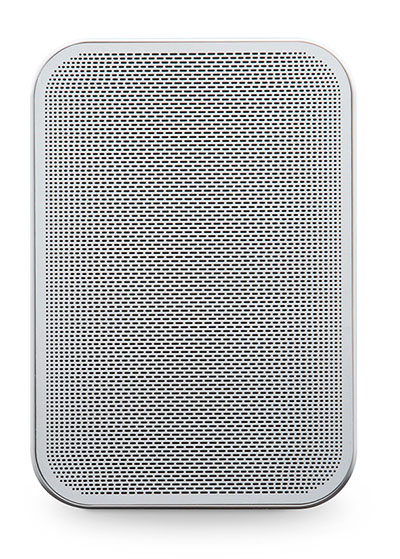
A couple of years ago, after much head-scratching, I bought an internet radio and amplifier. It was very nice, except that its connectivity was flaky, and it died in about two years. At the time, the owner of the store remarked, "It's much better than it has any right to be." That was true, except for its unreliability. In our era of disposable electronics, I did not send it off for repair, but will pay $25 to dispose of it at a recycling fair.
I recently spent almost ten times as much to replace it and one pair of hand-me-down speakers. So far, I have been delighted with the Bluesound equipment, which has been perfectly reliable. I purchased it from Q Audio in Cambridge, a one-man operation where the owner, Dariusz, is very knowledgeable technically, and also very good at listening to his customers. That's a combination that's rare and very valuable.
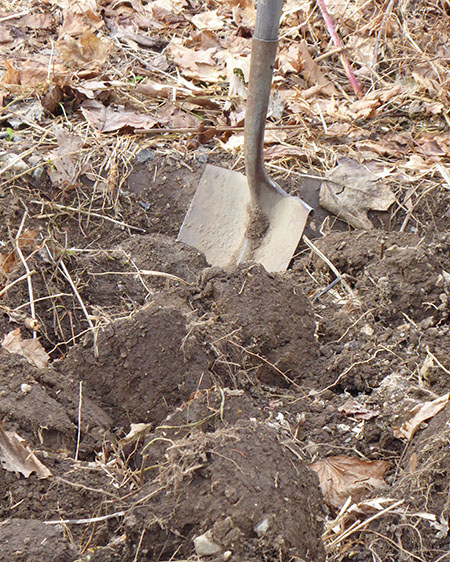
For the second year in a row, we had a hard cold snap fairly early in December, freezing the ground. Chores that I had planned to do at that time were postponed. Now, in mid-winter, we have had a relatively warm spell and the ground has thawed. I've noted warm mid-winter days before, but this is beyond a day or two. It's a warm spell… warm enough for long enough that not only the ground is unfrozen, but a lot of different kinds of green things are starting to sprout. That is not a good sign.
But for the moment, make hay while the sun shines, as the saying goes. Or, to take the view of another common saying, it's an ill wind that blows no one good (at least in the short term).
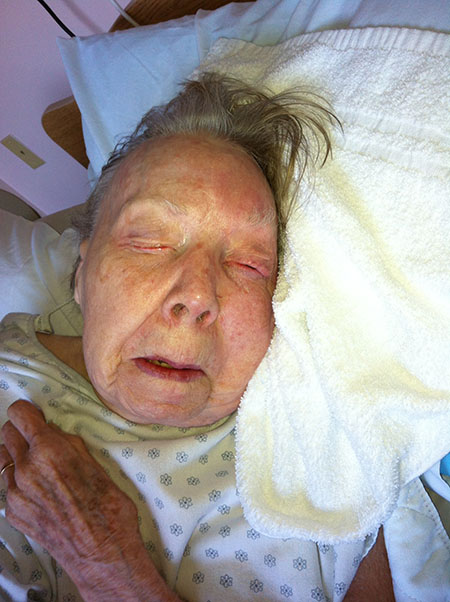
In the process of reorganizing picture files, I came across this one of my mother![]() in November 2013, shortly after one of the seizures she had during that period.
in November 2013, shortly after one of the seizures she had during that period.
It was an intense time. Often it was happy, sometimes very painful. Looking at some of the pictures nearly brings tears to my eyes again, even several years afterwards.
Without any “thou shalt” moral precept, I naturally ask myself on going to bed, have you done what you were going to today, and how did it work out? – and, on waking, what are you going to do today, given your thoughts on yesterday? There is no intrinsic merit in following plans, and overdone it turns into simple compulsiveness, not an admirable trait or pattern. Something unexpected may have come up during the day, or we may come up with a better notion of what to do than we had yesterday. This should happen at least once in a while, if we’re alive and awake and aware! And yet, most often my life is not so exciting, or full of new inspiration, that it's particularly different from what I could have reasonably foreseen. (Is yours?)
I've found that very often, when it turns out that I didn‘t do something I'd planned, the reason was that I didn’t quite know how to do it. And not doing things that one doesn’t know how to do may not be such a bad thing. For me, the sense of not knowing how to do something is usually pretty tied to fear of failure. If my ignorance or inability, or worse my fears, are keeping me from getting somewhere I want to go, it’s time to think about options and approaches. Remarkably often, the obstacle can be divided into a set of sub-obstacles, all of which can be addressed with remarkable ease. A handful of key deficits can be overcome with much patience and perseverence, such as learning to make big leaps at the piano keyboard. Less often, there’s a big stone (literal or figurative) that I simply can’t move. These last events can get frustrating, unless I can identify some alternate approach – such as hiring someone who has a big machine. Simply giving up goes against the grain, and leaves me in a pet for a while.
I've been thinking harder for the last few months about matching my plans to my ability to accomplish them, and I'll probably keep thinking about that for a while longer. (For a whole year? I doubt it. Some more deserving focus will probably come along.) I do believe it's important to do things that are very difficult. Sometimes that means working daily and conscientiously, as it does with the piano. Sometimes it means finding a part of ourselves that we hadn't recognized before, which is very rewarding. It shouldn't be very often that we fail completely at something we've set our heart on. That's discouraging, and a sign that our imagination – which is a good thing – is out of touch with reality – which isn't a good thing.
© 2026 Paul Nordberg